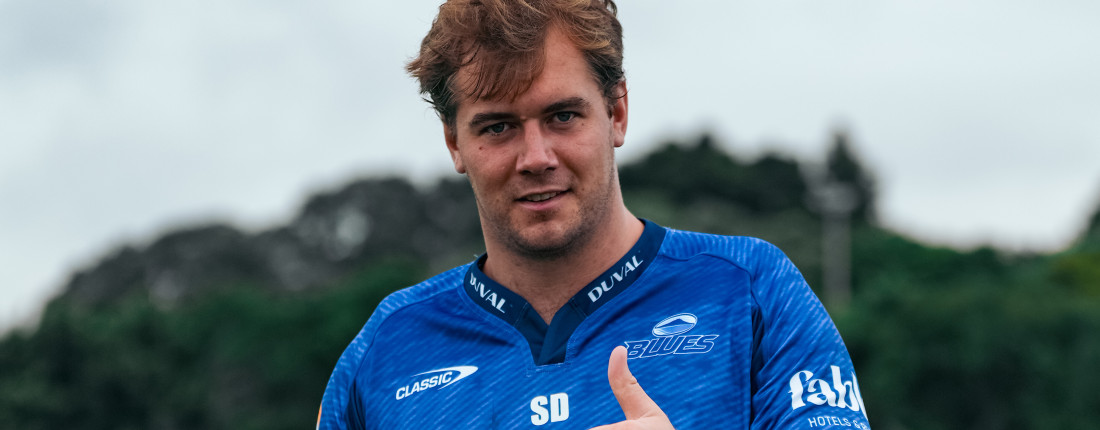
Darry said new coach Vern Cotter has had an early impact with a hard-nosed but honest approach.
"He doesn't beat about the bush. That's exactly what we need. If you're not doing something right, he'll be the first to let you know, and it's awesome because you know it comes from a place of care.
"He's made no bones about the fact he's come here for one reason, and that's to win a championship, and we all share that same sentiment."
Darry was taken nothing for granted about his contribution to the side. He and All Black Patrick Tuipulotu may look like the favoured locking pair. Still, with Laghlan McWhannell from the Chiefs, James Thompson from Counties Manukau and Josh Beehre from Auckland, there would be plenty of competition for places.
"We've all had a good start to the pre-season, so it will be awesome to compete with those guys and bring the best out of us all week in and week out."
Darry said he was lucky the broken arm he ended the 2023 campaign with happened toward the end of the season. His recovery occurred over the five-six weeks of the off-season, which had been good.
Coping with the frustration of the injury was not an issue.
"I've been taught at the academy in Christchurch that when things like injuries happen they present an opportunity, so I used it as a time to unwind a wee bit from footy, to take a bit of a break, mentally get refreshed and spend a bit of time on my Uni work and to reset some goals and reignite the passion for when I came back."
He's been doing a Bachelor of Commerce around the rugby demands of the last six years and is nearing qualification.
"It gives me a way to switch off from footy and gives me something to do outside of rugby that keeps my brain active. Sometimes you can get too caught up in footy so it is nice to come home and switch off from that and do something else."
He missed only three rounds of Canterbury's Bunnings NPC campaign, and his injury had no complications, which was good.
Darry confirmed the Bunnings NPC season had been one of the best in recent history.
"From a playing point of view, anyone could have beaten anyone on their day. It was such a tight competition. Most of our games for Canterbury were decided by two or three points and decided in the last five to 10 minutes.
"You knew as a player you were in for a dogfight each week, which is exciting, and it excites the players knowing every week is going to be a different challenge, and we had to come up with different ways to try and win the games."
There was disappointment with Canterbury missing out in the semifinals.
"But, from a playing perspective, it was awesome; I enjoyed it."
Darry has had no issues adapting to life in Auckland as he heads into the third season of his contract with the Blues.
"I like the balance between being up here for Super and down in Canterbury for the NPC. It quite refreshes you. I'm the only Canterbury person in the Blues and vice-versa. You come into a whole new group of teammates and a new group of friends.
"You can learn so much from them that you can take up north or south.
"Being up in Auckland is a bit of a change for me, I love it up here and have some really good mates."
It also helped that his first year's accommodation was over the road from the Blues training centre, so traffic issues were not an immediate concern.
"But I love it; there's so many things you can do, whether it's the beaches, fishing or whatever you're into."
One area of growth he's enjoyed has been his study of the lineouts, which he has always been interested in.
"I do a lot of work watching clips looking for opportunities, and I get a lot of satisfaction out of it. I love putting in the work on a Sunday and Monday trying to figure out the best way to create opportunities to win your ball or steal the opposition's ball.
"Then the satisfaction of, even if it's not you calling, but seeing it unfold on the field knowing the hard work you put in at the start of the week paid off. I get a lot of enjoyment out of that, and the lineout as a whole."
The interest extended to the lineout drives or special plays that provide other opportunities.
"Luke Romano did a lot of work in that space for Canterbury for many years, and I piggy-backed off him and tried to pick up as much as I could. This year, we did a lot of work around that, trying to exploit opportunities, whether through a maul or a special trick play."
The beauty of his involvement stemmed from the fact that there was no one-size-fits-all about the variations, with different teams focusing on different areas, which boosted the need to be adaptive.
